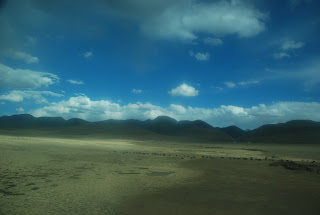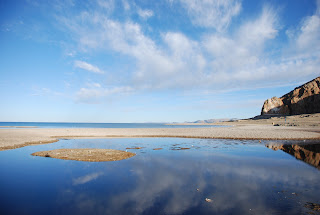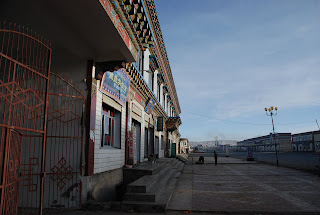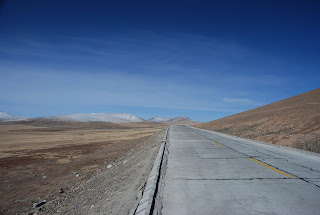
Oxygen-filled cabins. Automatic doors. Small table with smaller fold-up seats by the passage-way. Boiling-hot water for making instant noodles. Push-cart service selling take-aways and water-melon. Six-to-a-cabin hard-sleepers or four-to-a-cabin soft sleepers. Buffet car serving dinner that usually don't survive the journey because rumour has it that the staff ate up all the food. Large double-glazed windows offering a view of endless mountain ranges, glistening lakes, engulfing clouds and grazing wildlife.
That's what makes up the memories of the Qinghai-Tibet train-ride. Even during the waking moments.
The Qinghai Tibet Express speeds across the plains, reaching altitudes as high as 5,072m at the famous Tanggula Pass. Departing from either Shanghai or Beijing, the ride can take up to 52 hours non-stop until it pulls into the train station at Lhasa.

My ride began at Xining, Capital of Qinghai Province and didn't end until it covered 1,956km worth of railway track to arrive at Lhasa. The entire journey took 26 hours and spanned across some of the most breath-taking scenary the top of the world has to offer.
I guess even heavenly bliss can sometimes be marred by inconsiderate human behaviour. I was annoyed by a group of affluent mainlanders who spoke several decibels higher than they really need to, playing cards while paying little respect to other passengers' need for quiet and rest, eating and littering and smoking in the cabin and generally bahaving badly.
Notwithstanding, the imagery passing by outside the window tells of a different world - one of abundance, magnificence and resilience, all etched into the rocks, sands, clouds, rivers, sky and grass that quickly forms a picture before disappearing outside its termporal frame forever, only to be alive again in the mind's eye thousands of miles away.
Here, on this passage through land and time, every moment is a postcard picture and every scene a snapshot waiting to be frozen in time.
It is in this world of fleeting moments of natural beauty that one easily finds himself to be happily lost. Isn't this - life?

















































